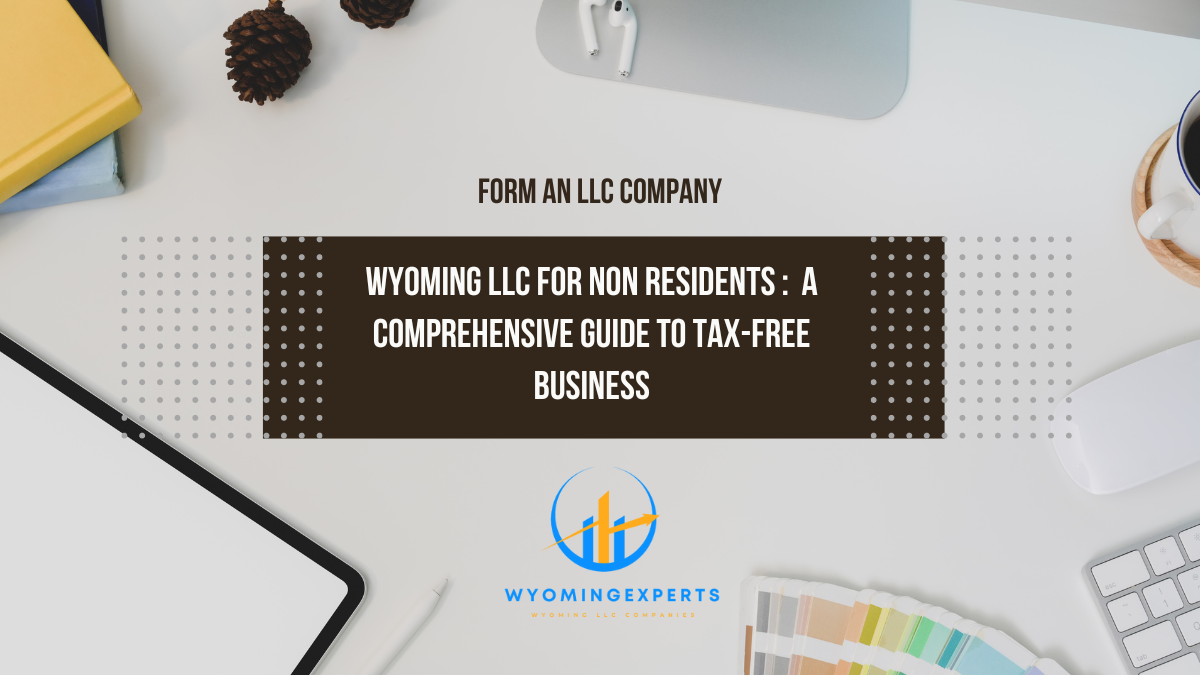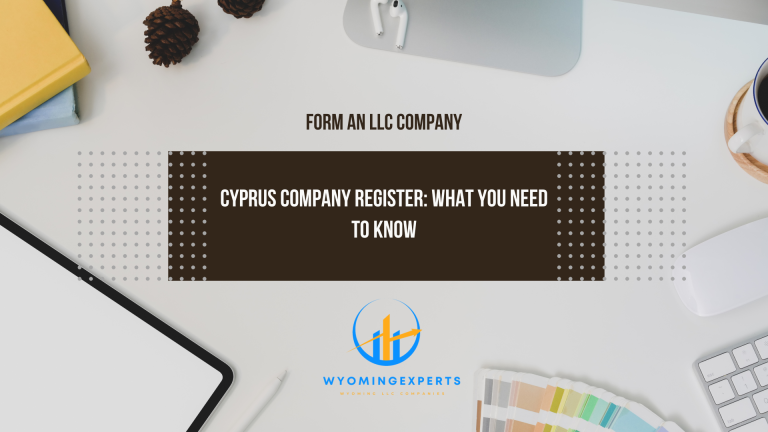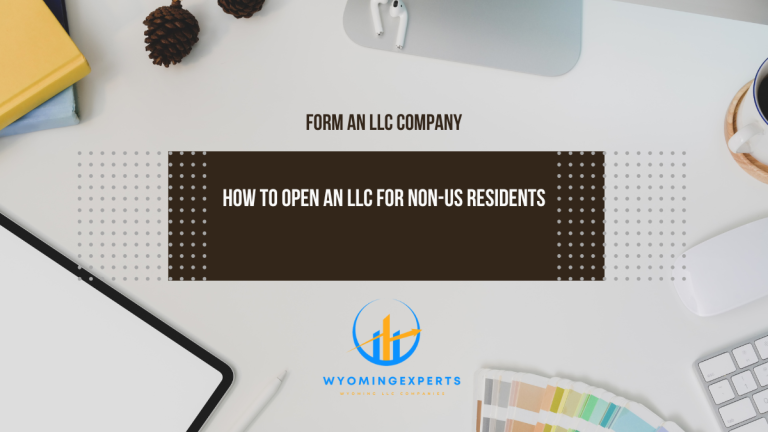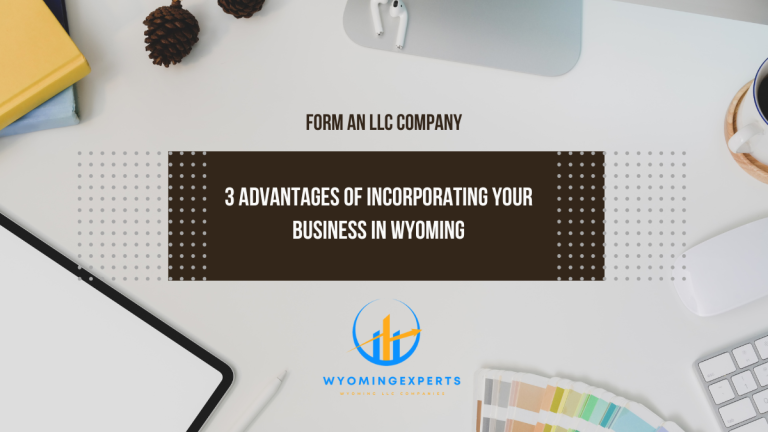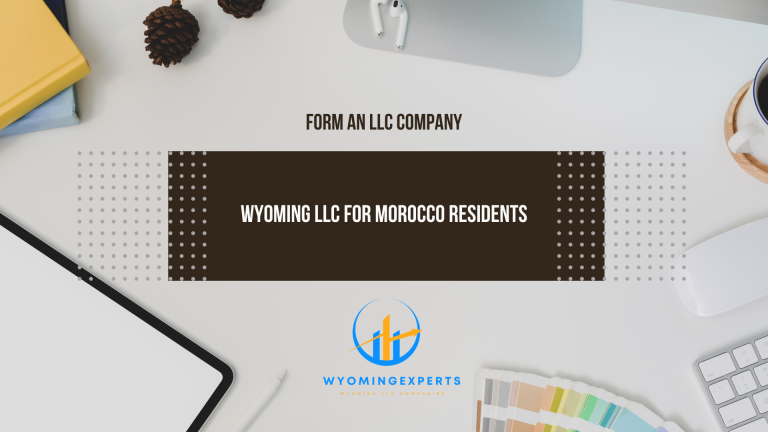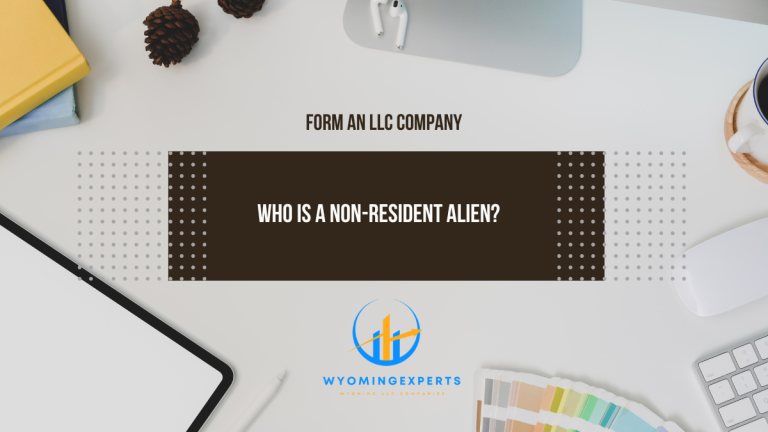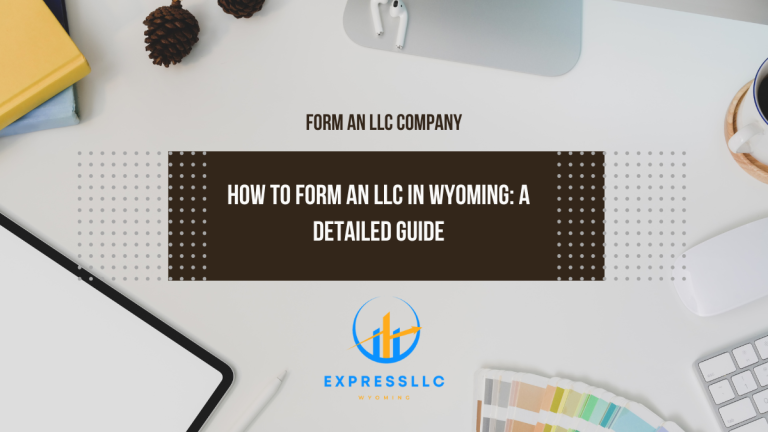Wyoming LLC for Non-Residents: A Comprehensive Guide to Tax-Free Business
The United States, with its diverse economy and favorable business environment, has long attracted entrepreneurs and investors from around the globe.
Among the various business structures available, the Limited Liability Company (LLC) is a popular choice for its flexibility, asset protection, and tax advantages.
For non-residents, particularly those looking to establish a business presence without relocating to the U.S., forming an LLC in Wyoming offers significant benefits, including the potential for zero federal and state taxation. In this detailed guide, we will explore everything you need to know about forming a Wyoming LLC as a non-resident and how to maximize its benefits while ensuring compliance with U.S. laws.
Introduction to Non-Resident Entrepreneurs
Non-resident entrepreneurs, in the context of U.S. business law, refer to individuals or entities that do not reside in the United States and do not meet the substantial presence test, which is primarily based on the number of days spent in the U.S. each year.
Despite not residing in the U.S., non-residents can establish and own businesses in the country, including LLCs, to capitalize on the U.S. market and its robust legal framework. Wyoming, in particular, stands out as an ideal state for forming an LLC due to its business-friendly policies, including no state income tax, strong privacy protections, and minimal regulatory burdens.
Who qualifies as a Non-Resident?
Understanding the definition of a non-resident is crucial when considering the formation of a Wyoming LLC. The Internal Revenue Service (IRS) defines a non-resident alien as someone who is not a U.S. citizen and does not pass the green card test or the substantial presence test.
- Green Card Test: This test is straightforward. If you have been issued a green card by the U.S. Citizenship and Immigration Services (USCIS), you are considered a U.S. resident for tax purposes, regardless of where you live.
- Substantial Presence Test: This test is based on the number of days you spend in the U.S. over a three-year period. If you are physically present in the U.S. for at least 31 days during the current year and 183 days over the last three years (counting all the days in the current year, one-third of the days in the previous year, and one-sixth of the days two years ago), you are considered a U.S. resident for tax purposes.
For those who do not meet these criteria, they are classified as non-resident aliens. As such, they are not subject to U.S. income tax on income derived from sources outside the United States, which is a key factor in the tax advantages available to non-residents forming a Wyoming LLC.
Benefits of forming a Wyoming LLC as a Non-Resident
Wyoming is a state that has gained a reputation for being one of the most business-friendly states in the U.S., particularly for non-residents. The benefits of forming a Wyoming LLC as a non-resident are numerous and extend beyond tax advantages to include privacy, asset protection, and operational flexibility.
1. No state income tax
One of the most attractive features of forming an LLC in Wyoming is the absence of state income tax. This means that your Wyoming LLC will not be subject to state-level taxation on its income, which can result in significant tax savings. This benefit is particularly valuable for non-residents who may already be subject to taxation in their home country.
2. Privacy and anonymity
Wyoming offers unparalleled privacy for business owners. The state does not require the disclosure of LLC members or managers in public records, providing a high level of confidentiality. This is particularly important for non-residents who may be concerned about their privacy or who want to avoid unnecessary exposure in public databases.
3. Asset protection
Wyoming has some of the strongest asset protection laws in the U.S. A Wyoming LLC provides a shield for personal assets from business liabilities, meaning that creditors cannot pursue your personal assets to satisfy business debts. This makes it an ideal vehicle for holding and protecting assets, such as real estate or intellectual property.
4. Flexible ownership and management structure
Wyoming LLCs offer great flexibility in terms of ownership and management. Non-residents can be the sole owners of the LLC, or they can structure it with multiple members. Additionally, Wyoming allows for both member-managed and manager-managed LLCs, providing flexibility in how the LLC is operated.
5. Ease of formation and maintenance
Forming and maintaining a Wyoming LLC is straightforward and cost-effective. The state has minimal reporting requirements, and the annual fees are among the lowest in the country. This ease of operation makes Wyoming an attractive option for non-residents who want to minimize administrative burdens.
Tax Implications: Achieving zero federal and state taxation
A significant advantage for non-residents forming a Wyoming LLC is the potential for zero federal and state taxation. However, achieving this requires careful planning and strict adherence to specific guidelines.
1. Understanding U.S. Source Income
The key to avoiding federal taxation is ensuring that your LLC does not generate U.S. source income. According to the IRS, U.S. source income includes:
- Income from services performed in the U.S.
- Income from the sale of goods within the U.S.
- Rental income from property located in the U.S.
- Income from U.S. securities, such as dividends or interest
If your Wyoming LLC generates income solely from non-U.S. sources, such as international sales or services provided outside the U.S., it is generally not subject to U.S. federal income tax. This is because the U.S. taxes non-residents only on their U.S. source income, not on income derived from foreign sources.
2. Federal Taxation: Pass-Through Entity Status
A Wyoming LLC is considered a pass-through entity for tax purposes. This means that the LLC itself does not pay federal income taxes. Instead, the income “passes through” to the LLC’s members, who report it on their personal tax returns. For non-resident members, only U.S. source income is subject to U.S. federal taxation. If the LLC has no U.S. source income, then there is no federal tax liability for the non-resident members.
3. State Taxation: Wyoming’s Tax Benefits
As previously mentioned, Wyoming does not impose a state income tax. This means that as long as your LLC does not have a physical presence in other states where it might be subject to state taxes, you will not owe any state income tax. This is a significant advantage over other states that may have state income taxes, franchise taxes, or other fees that could erode your profits.
Compliance Requirements for Maintaining Tax-Free Status
To fully benefit from the tax advantages of a Wyoming LLC, non-residents must ensure compliance with both federal and state regulations. Non-compliance can result in losing the tax-free status, leading to unexpected tax liabilities.
1. Avoiding U.S. Source Income
The most critical aspect of maintaining a tax-free status is ensuring that your LLC does not generate U.S. source income. This involves careful planning of your business activities to ensure that all income is derived from non-U.S. sources. It may be beneficial to consult with a tax professional who specializes in international taxation to ensure that your LLC’s operations are structured to avoid U.S. source income.
2. No Permanent Establishment in the U.S.
To avoid federal and state taxation, it is crucial that your Wyoming LLC does not have a permanent establishment (PE) in the U.S. A PE is generally defined as a fixed place of business through which the business of an enterprise is wholly or partly carried on. Examples of a PE include:
- An office or branch
- A factory or workshop
- A mine, oil, or gas well
- A construction site that lasts more than a specified period
If your LLC establishes a PE in the U.S., it may be subject to U.S. federal and state taxes on the income attributable to that establishment. Therefore, it is important to operate your LLC in a way that avoids creating a PE in the U.S.
3. Maintaining Proper Documentation
Maintaining accurate and detailed records of your LLC’s activities is essential. This includes documentation of all transactions, income sources, and business activities. Proper documentation is crucial in the event of an IRS audit or if you need to prove that your LLC’s income is not U.S. sourced. Good record-keeping practices will also help you stay organized and ensure that you comply with all filing requirements.
4. Annual Reporting Requirements
Although Wyoming has minimal reporting requirements, there are still some obligations that must be met to maintain your LLC’s good standing. These include:
- Filing an annual report with the Wyoming Secretary of State
- Paying the annual license tax, which is based on the value of the LLC’s assets located in Wyoming
- Submit IRS fillings
Failure to comply with these requirements can result in penalties and the loss of your LLC’s good standing, which could complicate your business operations and potentially lead to additional taxes.
When You Could Lose the Tax Benefits
While the benefits of forming a Wyoming LLC as a non-resident are substantial, certain actions can lead to the loss of these advantages, resulting in tax liabilities. Understanding the situations that could trigger U.S. federal or state tax obligations is crucial for maintaining your LLC’s favorable tax status.
1. Generating U.S. Source Income
If your LLC begins to generate U.S. source income, such as through sales to U.S. customers, services performed in the U.S., or investments in U.S. real estate, you may be subject to U.S. federal and state taxes. It is important to continuously monitor your LLC’s income sources to ensure that they remain outside the U.S.
2. Establishing a Permanent Establishment
As mentioned earlier, establishing a PE in the U.S. could subject your LLC to U.S. taxation. This could happen if your LLC opens an office, hires employees in the U.S., or engages in activities that constitute a PE under U.S. tax law. Avoiding a PE is essential for maintaining the tax-free benefits of your Wyoming LLC.
3. Changes in U.S. Tax Laws
U.S. tax laws are subject to change, and future changes could impact the tax status of your Wyoming LLC. For example, new regulations could redefine what constitutes U.S. source income or alter the taxation of non-resident LLC members. Staying informed about potential changes in tax law and seeking advice from tax professionals can help you adapt to any new requirements and maintain your LLC’s favorable tax status.
Conclusion
Forming a Wyoming LLC as a non-resident offers numerous advantages, including the potential for zero federal and state taxation, strong privacy protections, and asset protection. However, to fully benefit from these advantages, it is essential to understand and adhere to the specific rules and regulations that govern non-resident LLCs in the U.S. Proper planning, ongoing compliance, and staying informed about changes in tax law are key to maintaining the benefits of your Wyoming LLC.
At WyomingExperts.com, we specialize in helping non-residents navigate the complexities of establishing and managing a Wyoming LLC. Our expertise ensures that you can take full advantage of the opportunities available in this business-friendly state while avoiding potential pitfalls. Whether you are just starting out or looking to optimize your existing LLC, our team is here to provide the guidance and support you need.
For personalized assistance with forming your Wyoming LLC as a non-resident, contact WyomingExperts.com today. We are committed to helping you succeed in the U.S. market while maximizing your tax benefits and protecting your assets.

